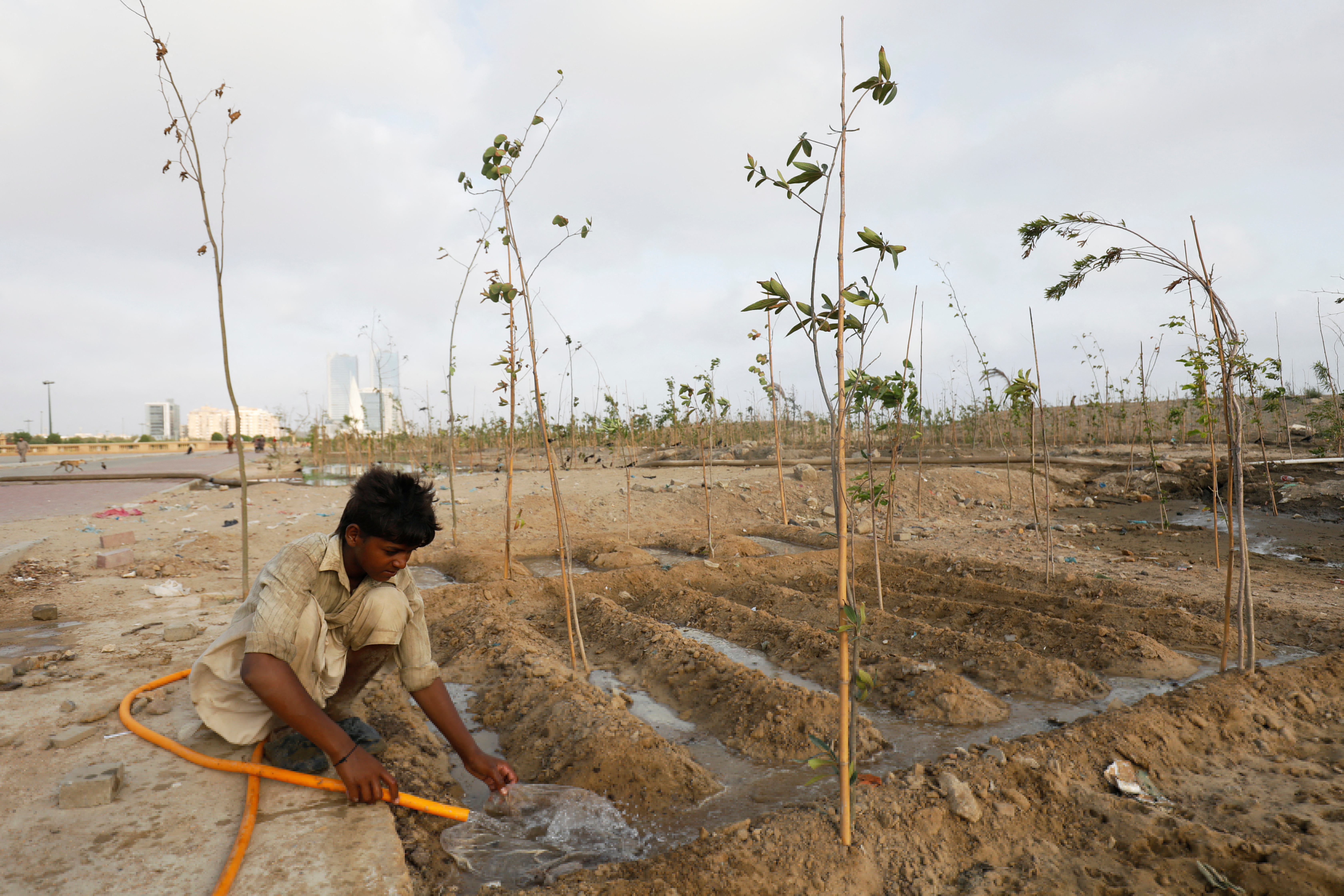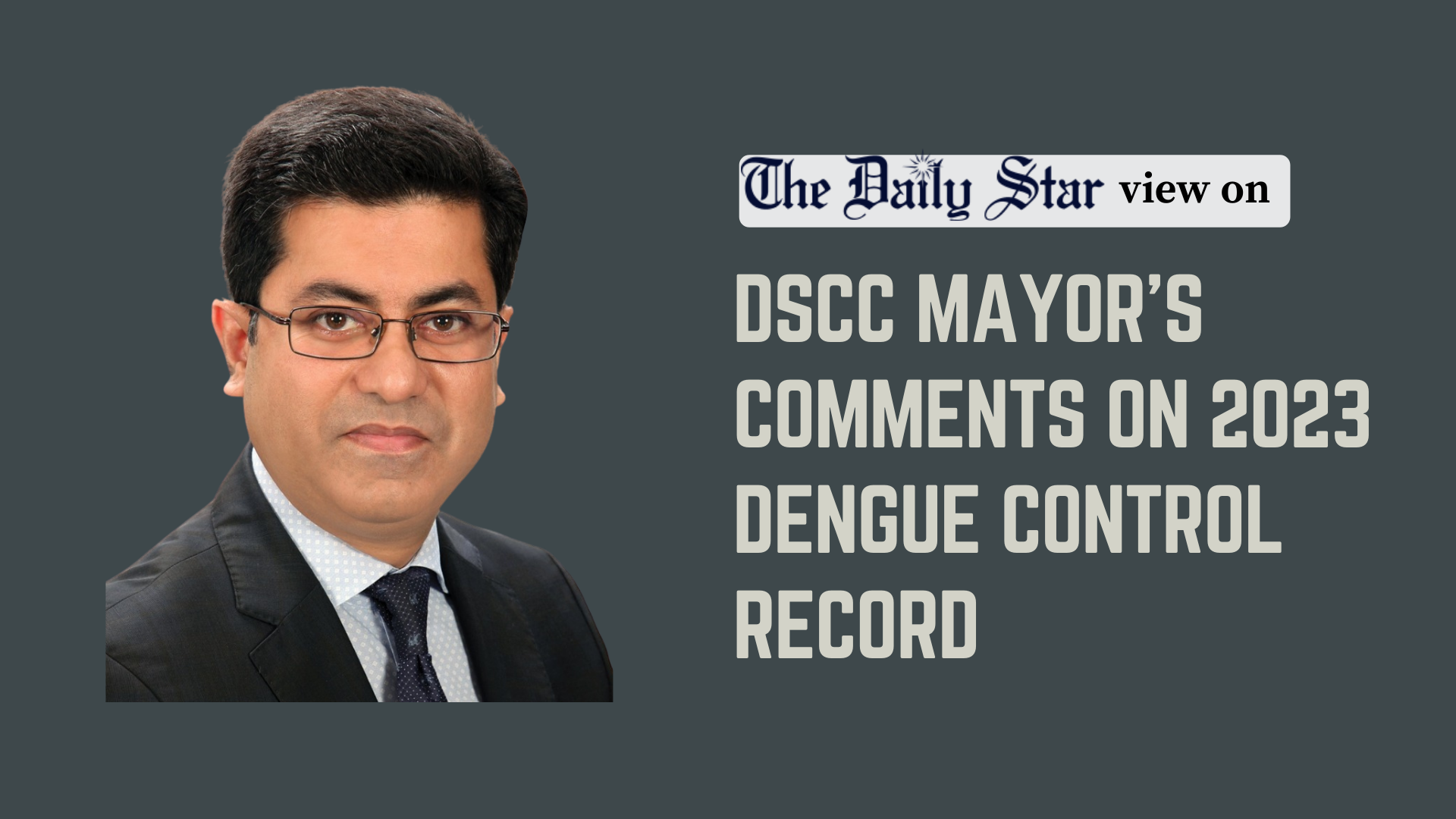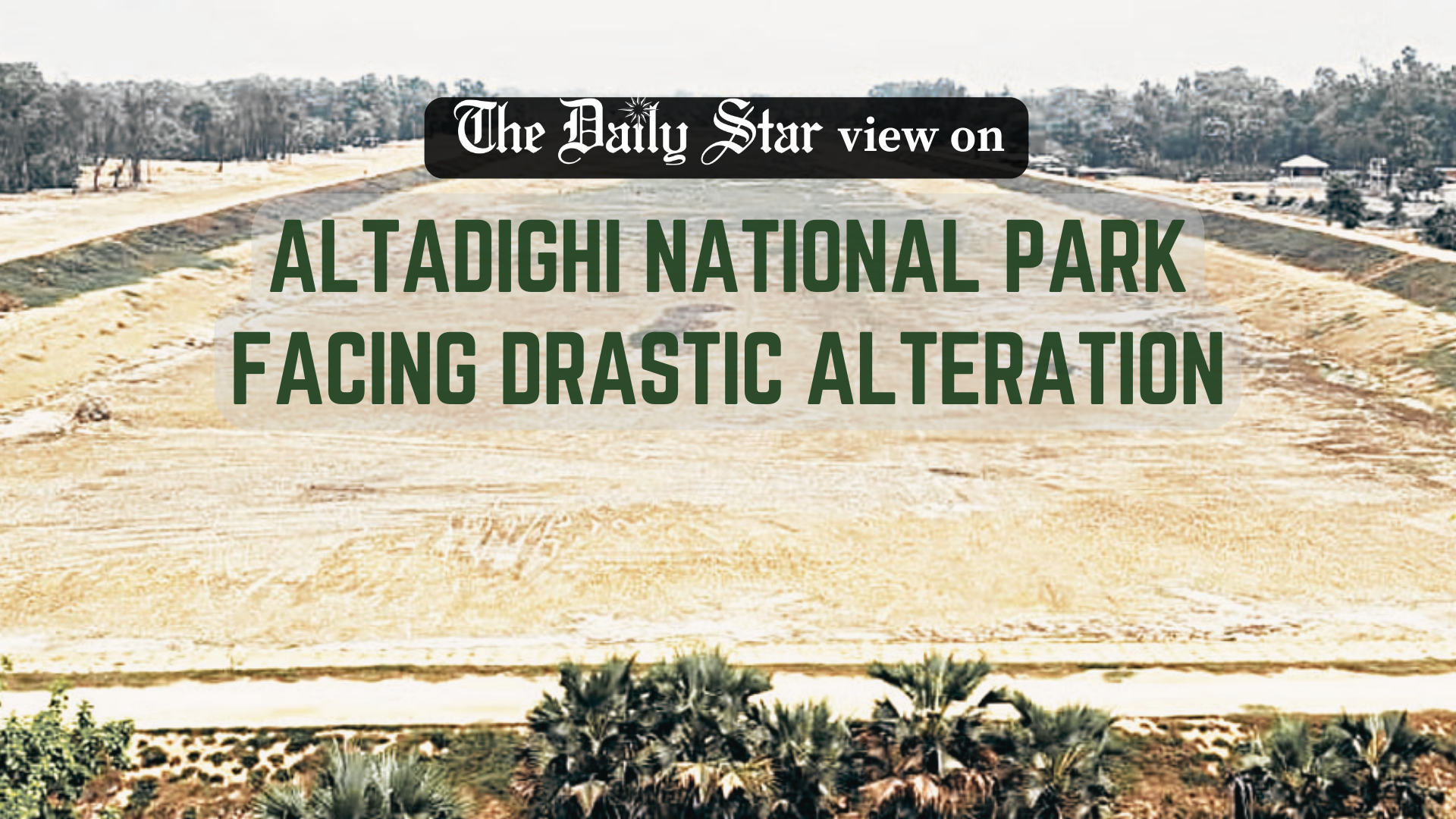Who owns the public spaces of Dhaka?

With record breaking heat and pollution in one of the least livable cities in the world, it is increasingly difficult for the people of Dhaka to breathe. As the economy of the country grows at a rapid rate, there are megaprojects being implemented which are touted by the government as "innovative" and "technological marvels." Yet when it comes to public spaces in urban areas which serve millions of people at a fraction of the cost, our public officials have failed.
Ideally, a geographical area is supposed to have 25 percent tree coverage to protect its environment, but Dhaka has less than 7 percent. Cities use parks to maintain and protect their environment. Parks encourage active lifestyles and reduce health costs, make cities more resilient, manage stormwater and mitigate flooding, increase community engagement, reduce crime and, of course, help cleanse the air and improve public health. Dhaka lags behind woefully in terms of park coverage. Dhaka South City Corporation (DSCC) has only 27 parks for its 75 wards while there are 23 parks in the 54 wards of Dhaka North City Corporation (DNCC).
How these parks are managed is another tale altogether.
The DSCC has leased out six of its parks to local ruling party members. One of them is the Nawab Siraj Ud-Daulah Park in Old Dhaka, which underwent a renovation worth Tk 1.5 crore three years ago. It was intended to be open to the public as a green space. However, food stalls and warehouses have mushroomed since, encroaching on the space. Part of the park has been taken over by various types of rides, including trains and swings, which are being marketed as entertainment for children and teenagers at the cost of Tk 30-50 per person. Leased out for a meager daily rate of Tk 650, this public park has now become a private money making enterprise.
The same thing has happened with the historic Bahadur Shah Park. Local residents have been protesting for a year to preserve this small patch of green space but the park's environment has been destroyed with the construction of permanent commercial structures in the already limited space. Similar scenarios can be seen in the Shaheed Sheikh Rasel Park in Jatrabari and Shaheed Matiur Rahman Park in Gulistan, which were both leased out. These are examples of a dangerous trend of privatising public spaces.
In 2021, a large number of mature trees were cut down to build restaurants and walkways at the historic Suhrawardy Udyan. After months-long protests by environmentalists, artists, curators and regular people, a writ petition resulted in putting a stop to the destruction of the environment and ecology of the park.
None of the parks in the DNCC have been leased out, but Justice Shahabuddin Ahmed Park in Gulshan was given to a third party for maintenance. Tall glass fences were built around the park which blocks airflow and a coffee shop was built inside the park. Regular parkgoers criticised the move and deemed this modification unnecessary.
Located in Farmgate, one of the busiest spots of Dhaka, is Shaheed Anwara Park, named after the first woman martyr of the Mass Uprising of 1969, Anwara Begum. It was temporarily handed to the Dhaka Mass Transit Company Limited (DMTCL), the government owned company in charge of Dhaka's metro rail projects, during the construction of the MRT-6 back in 2016. Hundreds of trees were cut down to make space for the depot for construction materials and machineries. After the completion of the construction of the first metro rail of Bangladesh, the park was supposed to be handed over to the DNCC for restoration. But now, the DMTCL wants to build a station plaza there instead. While inaugurating the newly built footover bridge in Farmgate in October 15, 2023 both the DNCC mayor and the home minister promised concerned citizens that they will protect the park. The mayor promised that the Shaheed Anwara Park will be brought back to its glory and opened to the public. The park is yet to be handed over to the DNCC authority and repeated statements from the DMTCL proved that the idea of building a commercial plaza at the public park is still a possibility. It begs the question whether building more commercial space in an already busy commercial area like farmgate benefits local residents or not. If the DMTCL really wished to make shops, then why did it not build commercial space within their multi-storey stations? We all give example of developed countries every time we undertake a project, yet we do not follow developed countries' examples when it comes to preserving nature and protecting public spaces.
Similarly, located not too far from Farmgate, the triangle shaped Panthakunja Park in Karwan Bazar used to be an oasis for local residents. A project worth Tk 19.2 crore was undertaken for the "beautification" of the park a few years ago, work on which has since stopped. DSCC stated the pillars of the expressway might fall in the park which is why the renovation work was halted. The majority of trees were cut down in the park whose space has been used as a dump yard for construction materials and machinery. It has remained like that for the last few years and once a green gateway in the middle of the city fell victim to the uncoordinated "development" work of the city. In April, the DSCC mayor said the park will be renovated by July this year, but the results of this promise remain to be seen.
At the beginning of last year, the DSCC cut down most of the decades old trees in the median of Satmasjid Road in Dhanmondi. After protests from locals, students, environmentalists and others, only 37 trees still survive on the road. DSCC argued from the beginning that the newly designed road divider could not be built without cutting down the trees. But after fierce protest and public pressure, the portion of road divider at the Shankar Bus Stand was built with the trees still standing there. These last remaining trees are standing examples of how all the trees on that road could have been saved if the DSCC had wished.
We would hope as the citizens of a soon to be "smart" country that the concerned authorities would take smart decisions when it comes to protecting the urban environment, trees and parks. We need to rethink our approach towards privatisation of public spaces and find sustainable solutions which will serve the citizens as well as the urban ecosystem. We demand that the authorities hand over the parks to whom they belong, the people of Dhaka.
Amirul Rajiv is an art historian, curator and co-founder of Duniyadari Archive.
Bareesh Chowdhury works at the Bangladesh Environmental Lawyers Association.
Naim Ul Hasan is an economist.
Views expressed in this article are the authors' own.
Follow The Daily Star Opinion on Facebook for the latest opinions, commentaries and analyses by experts and professionals. To contribute your article or letter to The Daily Star Opinion, see our guidelines for submission.





 For all latest news, follow The Daily Star's Google News channel.
For all latest news, follow The Daily Star's Google News channel. 


Comments